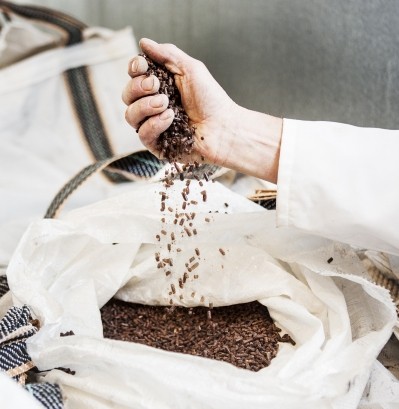Wood to feed protein startup moves a step closer to industrial scale-up

The Durham, North Carolina-based company uses a patented enzyme-based process and fermentation to transform wood into products for use in for a range of applications in the feed, food, and chemicals industries.
It pulled off a critical step in its demonstration program by completing continuous, stable operation of its fermentation technology over a seven-day period without contamination or product quality issues, to successfully produce over a half-ton of its torula yeast protein product, SylPro.
The output exceeded Arbiom’s initial target.
The innovator worked with its Sylfeed partner, Bio Base Europe Pilot Plant (BBEU), at its Belgian facility, to complete the continuous run. BBEU’s facility operates from lab level to a multi-ton scale.
Sylfeed is an EU-funded international and multidisciplinary four-year project, involving 10 actors all along the value chain, aimed at scaling-up Arbiom’s wood to food technology to convert wood residues into a protein-rich ingredient and testing it in aquaculture applications.
Arbiom said transitioning from batch to continuous operations is essential in scaling-up its industrial biotechnology to commercial production, as such action strongly improves process economics of a representative commercial production facility.
To date, the company has completed more than 1,500 hours of process scale-up operations. By the end of 2020, it intends to have run its bioconversion process continuously at the 15m3 scale (15,000 liters) as part of the critical path within its demonstration program, a three-year initiative that began in 2019.
Marc Chevrel, CEO, Arbiom, said that program includes continued R&D and engineering activities to confirm data and information required to design the first commercial-scale plant. “The program also encompasses market validation of SylPro through trials with customers,” he told us in March.
Feeding trials
The company has also been running feeding trials on SylPro intended to confirm the protein’s nutritional performance. Earlier this year, it announced the completion of a trial of its protein product in weanling pigs.
Arbiom said the research, which was published in the Journal of Animal Science and conducted at the University of Illinois in The College of Agricultural, Consumer and Environmental Sciences (ACES), indicated SlyPro could work as an alternative to fishmeal in the diets of young pigs.
Hans Stein, Professor of in the Department of Animal Sciences at the University of Illinois, ACES, said the torula yeast [SlyPro] product has greater digestibility of amino acids and phosphorus, but not energy, compared with a commercial source of fishmeal fed to weanling pigs.
Ricardo Ekmay, VP of nutrition and product development, Arbiom, commented: “We at Arbiom believe digestibility is a critical component of sustainability. Greater nutrient utilization, particularly of nitrogen and phosphorus, directly translates to a lower environmental impact.”
Stein said that the torula yeast product may have immune-boosting properties relative to fishmeal and he plans to investigate that effect in an upcoming study.
This story was updated on Monday 12 October to reflect the Arbiom VP's comments.













